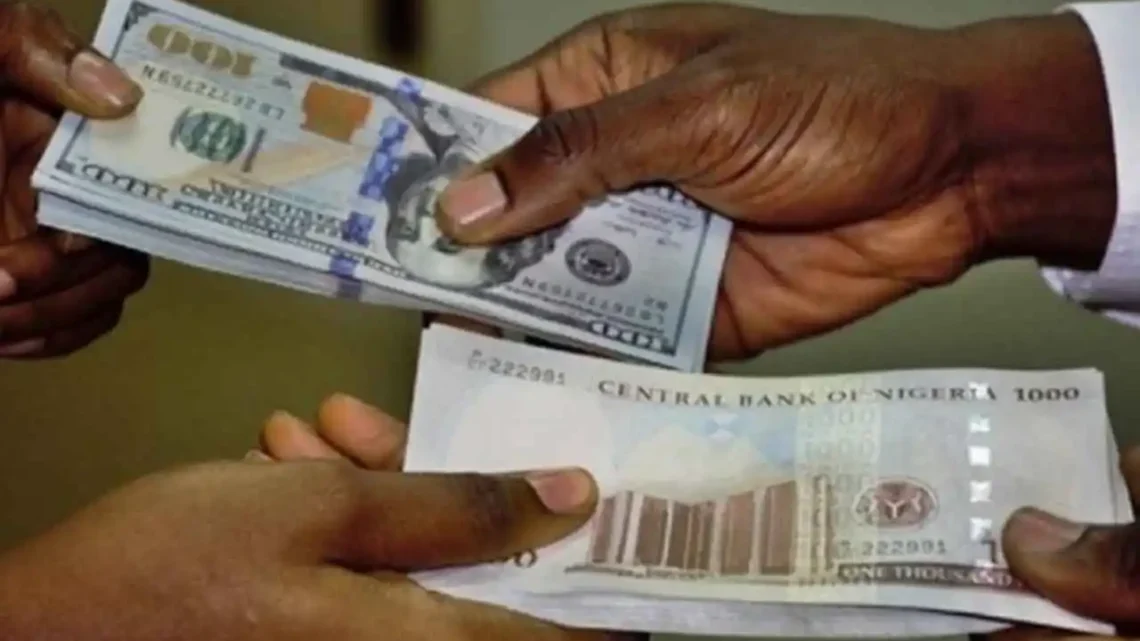
Aboki Naira to Dollar Black Market Exchange Rate Today, 8th October 2025
The Nigerian Naira showed remarkable resilience in the parallel market today, trading at approximately ₦1,470 per US Dollar, according to updates from Bureau de Change operators and Aboki Forex trackers.
This marks a slight stabilization from yesterday’s rates, offering a brief respite for importers, travelers, and small businesses grappling with the currency’s volatility.
Trending Now!!:
In Lagos, the bustling epicenter of Nigeria’s informal forex trade, black market dealers were observed quoting a selling rate of ₦1,470 for the greenback, with buying rates dipping to around ₦1,455. Similar patterns emerged in Abuja, Port Harcourt, and Kano, where Aboki (street forex) vendors reported consistent pricing amid brisk morning transactions.
“It’s holding for now, but volumes are low—everyone’s watching the CBN’s next move,” said one anonymous dealer in Wuse Market, Abuja, echoing sentiments from peers across major cities.
The parallel market rate, often a barometer for grassroots economic sentiment, contrasts sharply with the official Central Bank of Nigeria (CBN) window, where the Naira fetched closer to ₦1,500 in recent interbank sessions.
Economists attribute today’s equilibrium to a combination of factors: seasonal remittance inflows from the diaspora, a temporary lull in dollar demand ahead of the holiday season, and cautious optimism following last week’s modest oil price uptick.
Brent crude, Nigeria’s fiscal lifeline, hovered around $78 per barrel today, providing a subtle buffer against further depreciation. However, the calm may be short-lived. Analysts warn that persistent inflation—pegged at 22.5% year-on-year—and Nigeria’s ballooning import bill could exert downward pressure on the Naira in the coming weeks.
“The black market’s stability is fragile; without structural reforms like boosting non-oil exports, we could see a push toward ₦1,500 by mid-month,” noted Dr. Aisha Bello, a currency strategist at Lagos-based Zenith Economic Research.
Recent data from the National Bureau of Statistics underscores the strain, with food prices surging 25% amid forex shortages that have jacked up costs for essentials like rice and fuel. For everyday Nigerians, the rate’s steadiness translates to tangible relief.
A $100 remittance now yields about ₦147,000, enough to cover a month’s groceries for a family of four in urban centers. Yet, experts urge caution: “Shop around, verify dealers, and avoid large transactions without trusted sources,” advises the Aboki Forex platform, which aggregates real-time user-reported rates to combat scams in the unregulated space.
As the federal government intensifies efforts to unify exchange rates and attract foreign investment through incentives like the Dangote Refinery’s ramp-up, all eyes remain on the CBN’s upcoming monetary policy committee meeting.
For now, in the shadowy alleys of Lagos’ black market, the Naira stands firm—a quiet victory in an ongoing economic tussle.
Rates are indicative and subject to intra-day fluctuations. For live updates, consult trusted platforms like Abokifx or TheCityCeleb.


